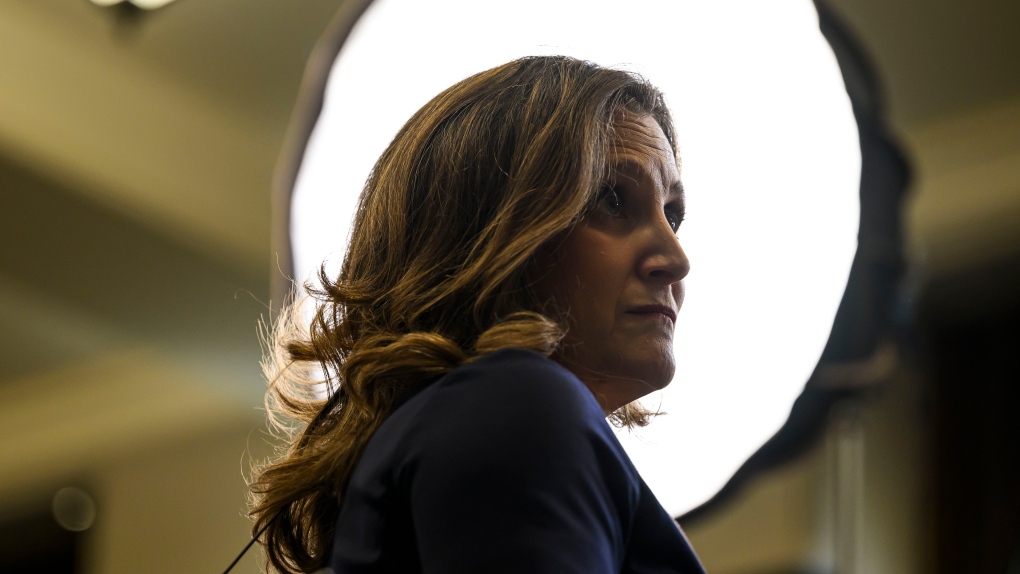It’s been three days since Bearskin Lake First Nation publicly asked the federal government for assistance from the Canadian military.
And still no response.
Nearly half of the roughly 400 people living in the remote First Nation 600 kilometres north of Thunder Bay, Ont., have tested positive for COVID-19. Even more are in quarantine.
It’s left the community with a dwindling number of people to perform essential tasks like delivering wood, food and medicine to those in isolation.
“We need external personnel to come in and help us. We need human resources,” said Charles Fox, a member of Bearskin Lake and a former Ontario regional chief.

The people who are able to work are “running on fumes,” Fox said. “How much longer can they continue? I don’t know.”
Despite the increasingly dire situation in Bearskin Lake, the First Nation is still waiting for a response from Ottawa as to whether the military will be deployed.
In an emailed statement on Wednesday, a spokesperson with the Department of National Defence said it hasn’t received a formal request for assistance.
The spokesperson said that request would have to be co-ordinated by Public Safety Canada, which has not responded to any requests for comment by CBC News.

“They’re just playing the game,” Fox said, adding the federal government is well aware of the challenges facing the First Nation.
“If the city of Toronto gets snowed under, [the army] will go in the following day. But we’re a First Nation. We’re far removed — out of sight, out of mind.”
Politicians demand Ottawa take action
But there is growing pressure on the federal government to respond to Bearskin Lake’s request for assistance.
After speaking with leaders in Bearskin Lake, Charlie Angus said it should not be so difficult for a remote community in crisis to get help from the military.

“We can’t get supplies into homes to heat them, to get food to elders, because so many people are in quarantine or sick,” said the NDP member of Parliament for Timmins—James Bay.
Angus sent a letter on Wednesday to Canadian Minister of Emergency Preparedness Bill Blair that demands action.
“What does it take for the Canadian government to step up and say, ‘Yeah, we’ll be there to help?'”

Angus said the military has the logistical support and the labour force needed in Bearskin Lake. But he claims the government systemically responds slower to remote First Nations in crisis.
“It’s this pattern of shrugging, hoping for the best, waiting it out, and a fundamental culture of indifference,” he said.
Eric Melillo, the Conservative MP whose Kenora riding includes Bearskin Lake, also tweeted his support for the First Nation’s appeal for military assistance.
I have been in touch with Chief Kamenawatamin from Bearskin Lake about the COVID crisis in their community. <br><br>It’s clear the government needs to move quickly to mobilize support – they cannot afford to wait any longer.
—@Eric_Melillo
Meanwhile, donations from nearby remote First Nations continue to flood into Bearskin Lake, with planes landing filled with food, medicine, air purifiers and other essential items like diapers.
“They do appreciate all of the support they’ve been receiving from neighbouring communities,” said Nishnawbe Aski Nation Grand Chief Derek Fox, who represents 49 First Nations across northern Ontario and is from Bearskin Lake.
“But the problem is there’s no boots on the ground. So whatever comes into the First Nation, there’s no one there to deliver those things. There’s no one there to cut the wood.”
In the last week, Indigenous Services Canada has approved $1.1 million to help Bearskin Lake with its response. Nearly half is for food security, personal protective equipment and isolation spaces.
The rest was approved to enhance community security, and support the transportation of volunteers and service providers coming into the community.
WATCH | Nishnawbe Aski Nation Grand Chief Derek Fox speaks about COVID-19 outbreak in Bearskin Lake:
Derek Fox, the grand chief of the Nishnawbe Aski Nation and a member of Bearskin Lake, is calling for the federal government to deploy members of the military to help battle a major COVID-19 outbreak in the remote First Nation. 7:09
But Fox said Bearskin Lake shouldn’t be forced to rely on volunteers, and paid, trained members of the military are needed.
The need for their support may become more critical in the coming week, as Bearskin Lake Chief Lefty Kamenawatamin worries some community members may need to be hospitalized.

He said the community is about 80 per cent vaccinated, but he is concerned about elders, infants and vulnerable people with chronic health conditions.
The community is at a breaking point, Kamenawatamin said, adding he doesn’t know how bad things need to get before Bearskin Lake gets help.





More Stories
Trump allies Meadows, Giuliani among 18 indicted in Arizona election interference case | CBC News
RCMP confirm 2 kayakers missing from Sidney, B.C., found dead in Washington state | CBC News
Why did the U.S. TikTok ban bill get packaged with foreign aid?